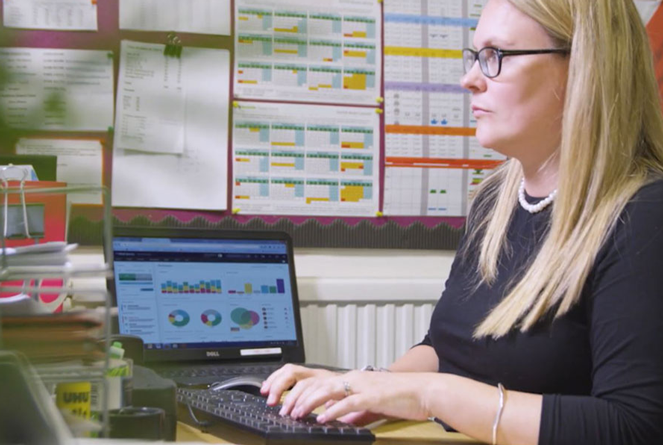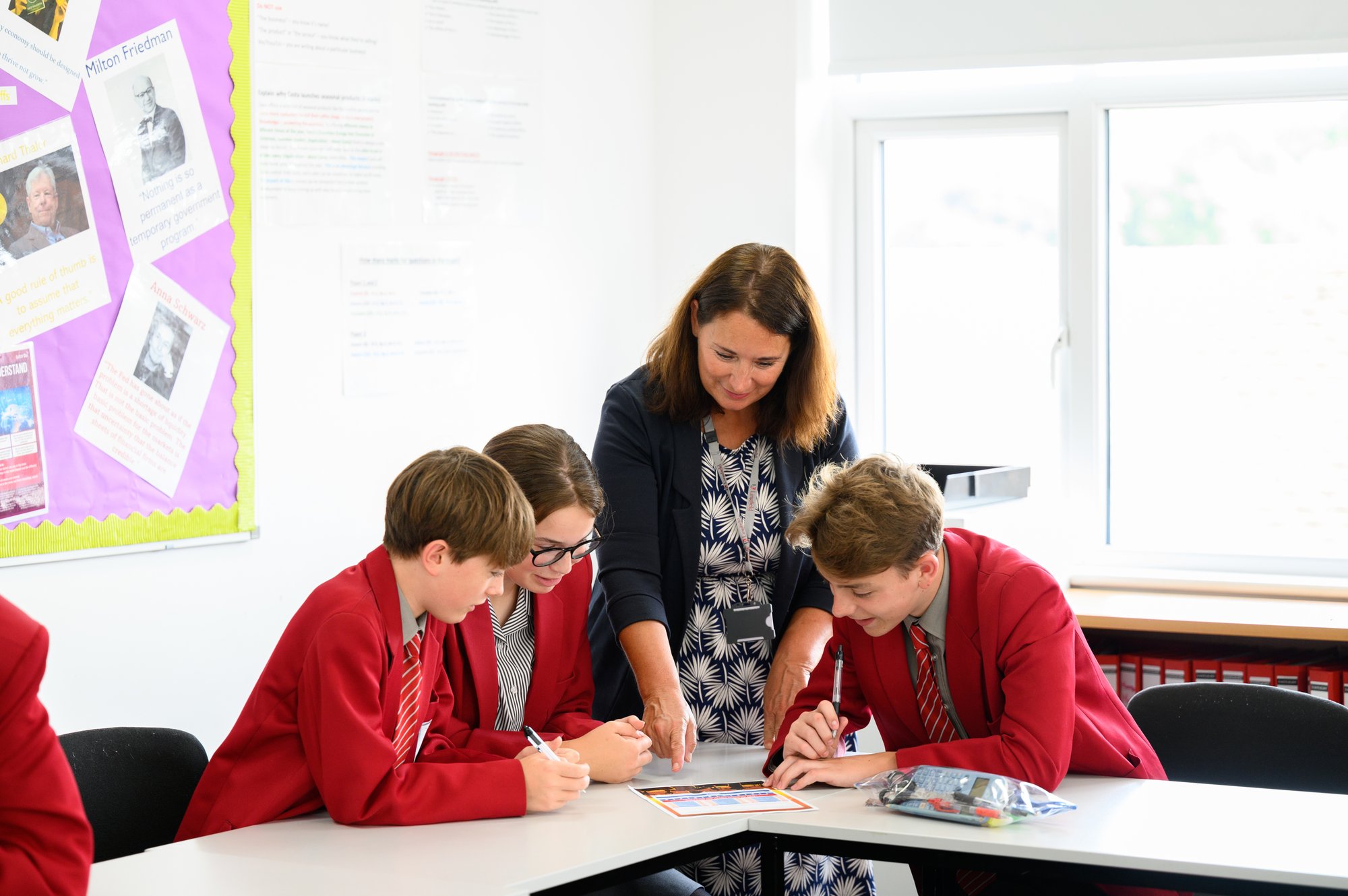Formation of the Primary School Library Alliance
Started in 2021 by the National Literacy Trust and Penguin Random House UK, the Primary School Library Alliance aims to tackle the issue of underinvestment in primary school libraries through the Libraries for Primaries campaign.
The approach adopted by the Alliance is multifaceted. It involves sourcing funding from various sectors, including public, private, and philanthropic domains, to overhaul library spaces and enrich book provisions in primary schools. Additionally, the campaign empowers schools to instil a culture of reading for pleasure through resources and training.
Impact of initiatives
Incredible strides have been made since the Alliance's inception. Over 640 schools have witnessed transformative changes in their library or reading spaces. The impact? Nearly a quarter of a million more children now embark on a journey towards a lifelong passion for reading, unlocking many benefits along the way.
The urgency and disparities
But the journey is far from over. A pivotal phase awaits—the extension of this initiative is to encompass every primary school in the UK. But why the urgency? The link between poverty and low literacy levels is evident. Research affirms that reading for pleasure not only supports educational development but significantly influences personal growth, confidence, and future prospects.
But the statistics reveal regional and economic disparities in school library provision and more generally in access to books:
- 1 in 7 state primary schools lacks a dedicated library or reading space
- 1 in 10 children from disadvantaged backgrounds do not have a single book at home
- 18% of schools in the North East of England do not have a library or reading space as opposed to just 6% of schools in the South East of England
The case for primary school libraries is compelling and is backed by economic analyses showing that increased reading rates correlate with improved academic outcomes. Research consistently underscores the positive impacts of school libraries on various pupil outcomes, from academic achievements to overall well-being.
Future plans and ambitious goals
The report doesn't just illuminate the existing gaps but charts a roadmap for action. By 2024, the aim is to revolutionise the libraries of 1,000 primary schools, with plans to extend this initiative to all remaining schools by 2028. A robust partnership model, backed by economic projections, envisions a sustainable pathway to ensure book provision in every primary school.
The financial challenges are clear, with school budgets under strain and parental book purchases dwindling due to the cost-of-living crisis – stats show that 1 in 5 parents are now buying fewer books for their children. However, the vision remains firm: to create an inclusive education landscape where every child, irrespective of background or region, can access the transformative power of books.
Initiatives for reading enrichment in primary schools
The National Literacy Trust embarked on transformative programmes in 2022-23 to elevate the reading experience in primary schools. These initiatives aimed to create vibrant reading environments and empower educators to champion reading for pleasure.
Programme highlights
World of Stories: Equipping schools with books and training, and connecting them with both the public library service and, where available, their regional School Library Service.
Chase Rewarding Futures: Encourages digital tools for widespread reading culture by offering training, books, and audiobooks.
Oxfordshire Raise a Reader: Provides books, reading spaces, specialised training, and engaging author visits.
Practitioner insight
Evaluation data shows that all three programmes significantly promoted reading for pleasure in schools. Insights were collected from 158 practitioners who responded to a survey at the end of the school year and 104 practitioners who completed both pre- and post-surveys.
Higher quality provision
More practitioners described their school library provision as ‘very good’ or ‘good’ at the end of the school year when their library had been transformed, compared with the start of the school year (90.0% vs. 61.8%).
Almost all (98.1%) practitioners rated the diversity of authors, topics and characters represented in the book collection as ‘very good’ or ‘good’ at the end of the school year.
3 in 4 (74.2%) practitioners said that they have been better able to support pupils’ reading during the cost-of-living crisis.
Greater levels of practitioner confidence
Nearly all (99.1%) practitioners felt confident creating an engaging school library at the end of the school year, compared with 7 in 10 (72.5%) at the beginning.
Better understanding and prioritisation of reading for pleasure
Almost all (95.6%) practitioners felt their understanding of supporting reading for pleasure improved, and all (100%) now felt confident to do so.
The future of Libraries for Primaries
The primary aim of Libraries for Primaries is to ensure sustained book provision in primary schools.
Their plan involves collaborating with the Publishers Association in 2024 to establish a cross-publisher working group. This team will develop a sustainable model to serve the entire ecosystem: publishers, booksellers, authors, and schools. Simplicity remains a key factor for scalability while retaining the programme's successful elements: diverse book selections, high-quality training, and integration with the library sector.
In conclusion
This report isn't just a call to action; it's a testament to the transformative potential of primary school libraries. It advocates for a collaborative approach involving publishers, booksellers, authors, schools and the library sector to create a future where every primary school in the UK boasts an engaging and effective library.
Igniting a passion for reading through primary school library development and the Juniper Book Awards
Juniper Education is fully supportive of the Libraries for Primaries campaign and is pleased to be part of the World of Stories programme once again in Essex, Thurrock and Southend. The practical, hands-on support of our team of librarians to edit and organise book collections, libraries and other reading spaces gives schools an excellent foundation from which to build their reading-for-pleasure culture.
Our annual Juniper Book Awards embodies this commitment to reading for pleasure. promoting reading engagement among primary pupils aged 10+ and secondary students in Years 7-9. The event is now open for the 23/24 academic year!
If you want to promote reading in your school, discover more or sign up today for this inspiring event!


/Primary%20school%20.jpg?width=2000&name=Primary%20school%20.jpg)








.png?width=940&height=788&name=Lingfield%20College%20Case%20Study%20(5).png)
-1.png?width=1000&height=833&name=National%20Association%20of%20Head%20Teachers%20(3)-1.png)
-3.png?width=1080&height=1080&name=Untitled%20design%20(10)-3.png)






